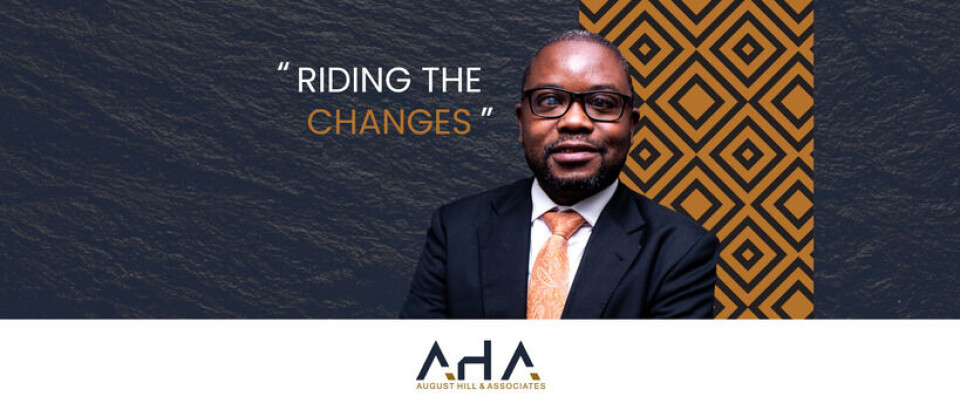“Pushing boundaries within a traditional context” is how Layeni Phiri and Augustine Hamwela describe the mission of their newly-established law firm August Hill & Associates. The pair, based in Lusaka, Zambia, are out to challenge a straightjacketed approach to legal service provision in the country. As the new kids on the block, they have a lot to prove in a competitive market.
Being client centred, thinking creatively, and drawing on a global client list are how they plan to set themselves apart. “Both Layeni and I have significant experience working for reputable and sizeable local and international clients,” Augustine said. “We agreed right from the start that we wouldn’t operate as this little backwater Zambian firm focusing just on Zambian clients.”
August Hill & Associates advises across various areas including mergers & acquisitions, venture capital, private equity, and key sectors of the Zambian economy such as mining, energy, telecoms and financial services. Since the election of Hakainde Hichilema as Zambian president 14 months ago, there has been a positive shift in sentiment towards Zambia by international investors. However, that hasn’t yet changed some of the deep-rooted difficulties that exist in getting M&A transactions over the line.
“The [African] M&A environment is easier in some countries than others. One of the huge factors is the regulatory bottleneck that exists,” says Augustine. “In a number of countries, the various hoops you have to jump through to complete an M&A transaction are not very clear and they elongate the process unnecessarily.”
Augustine cites two examples of potential bottlenecks for M&A transactions from a Zambian perspective: firstly, the threshold for triggering a mandatory clearance obligation from a competition law perspective is very low – just below a million dollars of either combined assets or revenue – given the deal sizes they typically come across. Secondly, it is not easy to perform a comprehensive due diligence exercise as some of the public registries are not electronic and information is not always available.
Augustine goes further: “Zambia and Africa need to develop the mindset whereby regulation follows innovation. In Kenya, their regulation around e-money actually followed the practice of e-money itself. By the time the regulation came along, it was coming to regulate an industry which the central bank had allowed to flourish with some loose regulation.”
The firm typically works with offshore entities seeking transactions in Zambia, and they have worked with investors from Europe, America, North Africa, the Middle East, India, Hong Kong and China. Given their solid experience of both the Zambian and international legal scene, this approach, they believe, differentiates them in the market.
“In our experience, transactions move quicker in sectors where regulators are more open minded and information is easy to come by. The drive to rationalise the licensing regimes which we understand is currently a priority in Zambia will positively affect the ease of doing business and reduce the lead time between negotiations and closing of a deal,” Augustine explained.
Looking ahead, the pair are not short of ambition. “Over the next three to five years, we want to grow and compete, taking our team to about 15 to 20 lawyers,” Augustine stated. “Such growth will expand our capacity, giving us the opportunity to take on more instructions.”
To join Africa Legal's mailing list please click here

